Former editor of artists & illustrators magazine and urban sketcher James Hobbs shows you how to use pen and ink on the move

Part of the allure of working with pen and ink is just how wonderfully simple it can be. If you are heading out to work on location, the equipment you take with you doesn’t need to weigh you down or break the bank: at its simplest, it need be no more than a sketchbook and a fineliner pen; just that is enough for a lifetime’s work. And yet you can take it much further, into coloured inks, liquid inks, fountain pens, thick markers, brush pens, twigs or bamboo pens. Inks dry quickly, and generally stay fixed. This may seem a disadvantage, but it is a boon if you’re on the move, and it leads you to be bold and take chances in the way you work. I would encourage people to skip any preliminary pencil marks. Head straight into a scene with ink and trust yourself. The results will have more energy because of it, even if things don’t always succeed.
These exercises include the gradual layering of ink washes, a composition constructed with simple monochrome lines, and quick pen studies of the rapidly changing landscape as seen from a train. Give them a go if you are travelling with pen and ink.
LAYERED WASHES
An advantage of working with waterproof ink is the way in which it can, when used in a diluted form, be gradually built up in layers with glazing-style technique. Ink’s permanence can seem a drawback, but the approach adopted in this exercise uses it to positive effect.
Materials:
Winsor & Newton black Indian ink, Winsor & Newton Apple Green ink, Pentel Aquash Waterbrush and A5 Schoellershammer No.10 200gsm paper.
Esta historia es de la edición September 2016 de Artists & Illustrators.
Comience su prueba gratuita de Magzter GOLD de 7 días para acceder a miles de historias premium seleccionadas y a más de 9,000 revistas y periódicos.
Ya eres suscriptor ? Conectar
Esta historia es de la edición September 2016 de Artists & Illustrators.
Comience su prueba gratuita de Magzter GOLD de 7 días para acceder a miles de historias premium seleccionadas y a más de 9,000 revistas y periódicos.
Ya eres suscriptor? Conectar

Still life IN 3 HOURS
Former BP Portrait Award runner-up FELICIA FORTE guides you through a simple, structured approach to painting alla prima that tackles dark, average and light colours in turn
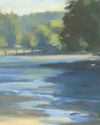
Movement in composition
Through an analysis of three masterworks, landscape painter and noted author MITCHELL ALBALA shows how you can animate landscape composition with movement
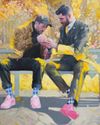
Shane Berkery
The Irish-Japanese artist talks to REBECCA BRADBURY about the innovative concepts and original colour combinations he brings to his figurative oil paintings from his Dublin garden studio
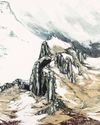
The Working Artist
Something old, something new... Our columnist LAURA BOSWELL has expert advice for balancing fresh ideas with completing half-finished work
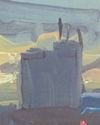
Washes AND GLAZES
Art Academy’s ROB PEPPER introduces an in-depth guide to incorporating various techniques into your next masterpiece. Artwork by STAN MILLER, CHRIS ROBINSON and MICHELE ILLING

Hands
LAURA SMITH continues her new four-part series, which encourages you to draw elements of old master paintings, and this month’s focus is on capturing hands

Vincent van Gogh
To celebrate The Courtauld’s forthcoming landmark display of the troubled Dutch master’s self-portraits, STEVE PILL looks at the stories behind 10 of the most dramatic works on display
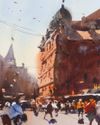
BRING THE drama
Join international watercolour maestro ALVARO CASTAGNET in London’s West End to paint a dramatic street scene
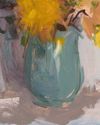
Serena Rowe
The Scottish painter tells STEVE PILL why time is precious, why emotional responses to colour are useful, and how she finds focus every day with the help of her studio wall

Bill Jacklin
Chatting over Zoom as he recovers from appendicitis, the Royal Academician tells STEVE PILL about classic scrapes in New York and his recent experiments with illustration